Description
ABSTRACT
Examination of the Effectiveness of Micro and Macro Prudential Policies in Achieving Bank Stability with Special Focus on Basel III
Dr. Amaechi Chinenyeze *
This article examines the effectiveness of micro and macro prudential policies in achieving bank stability. While micro prudential policies focus on individual banks, macro prudential policies focus on the whole financial sector. The question now becomes whether each of the policies is enough to achieve system wide stability or must they complement one another to be more effective? Also, the fact that macro prudential policies may stabilise the economy when there is system wide credit growth, but ineffective when a boom is not associated with system wide credit growth makes this article to argue that monetary and fiscal policies must supplement micro and macro prudential policies in order to be more effective in achieving system wide economic stability. Basel III adopts the policy tools mentioned above as bail-in-debts, systemic capital surcharge, leverage and liquidity ratio, contingent capital, counter cyclical buffer and conservative buffer. However, its ability to achieve stability in developing countries is in doubt. This is due to the fact that the size of banks in developing countries does not qualify them as internationally active and also, there are governance and institutional problems militating against the effective implementation of Basel capital standards. This article argues that for the implementation of Basel III capital standards to be effective in developing countries, factors inherent in them must be taken into consideration. This implies that a ‘one-size-fits-all’ type of bank regulation may not achieve bank stability.
INTRODUCTION
The failure of Basel II to prevent the recent global financial crisis has led to doubts on the ability of micro prudential policies to achieve stability in the financial sector.1 This is due to the fact that capital requirements, which are the main emphasis of Basel II,2 only achieve stability in individual banks but not in the whole financial sector. This led to the suggestion that regulation should focus on macro prudential policies. The rationale for this is that macro prudential policies focus on the stability and soundness of the whole banking sector as against the stability of individual banks. In other words, stability and soundness of the whole banking sector have more capability of preventing systemic crises than the stability and soundness of individual banks. However, the dichotomy between micro and macro prudential policies has led to questions from scholars and financial experts as to whether macro prudential policies alone can achieve stability in the whole banking sector. 3The answer to this question seems to be in the negative as is demonstrated in this article and it is suggested that micro prudential policies should complement macro prudential policies in order to achieve system wide stability.
Also, this article contends that monetary and fiscal policies need to supplement micro prudential and macro prudential policies in order to achieve system wide stability in the economy. For instance, central banks may increase interest rate which is a monetary policy tool to reduce aggregate demand and stabilise the economy during economic expansion. It can also reduce interest rate to increase aggregate demand in order to stabilise the economy during recession. In the same vein, governments may adjust taxation and spending, which are fiscal policies to stabilise the economic cycle. The ability of monetary and fiscal policies to assist macro prudential and micro prudential tools to achieve stability in the economy brings to light the contention that relying on either of these tools at the expense of others may not achieve system wide stability.
*LL.B, BL, LL.M,P h.D. Lecturer, Faculty of Law, Imo State University, Owerri
- World Finance ‘World Finance on Basel III’ (2013) 1-7 at 3 accessed on 15 March 2015
- Basel II is a minimum set of capital that each bank in developed countries should hold based on the riskiness of its assets. Basel II has three pillars. Pillar 1 is the minimum regulatory capital and includes credit risk, market risk and operational risk. Pillar 2 is supervisory review which enables regulators to identify risk factors not captured in pillar 1. Pillar 3 is market discipline which helps to enhance transparency in the financial sector. It is worth noting that the focus of this article is basically pillar 1
- This issue is explored in the next section of this article

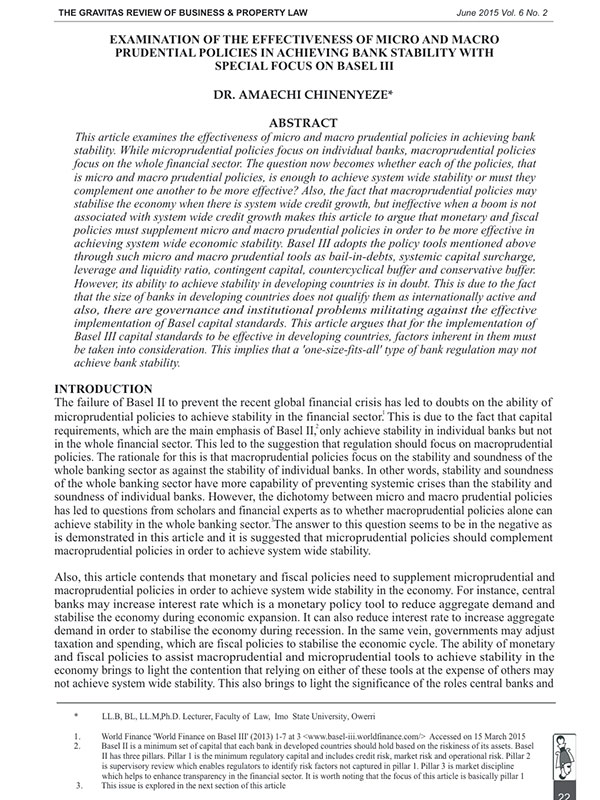
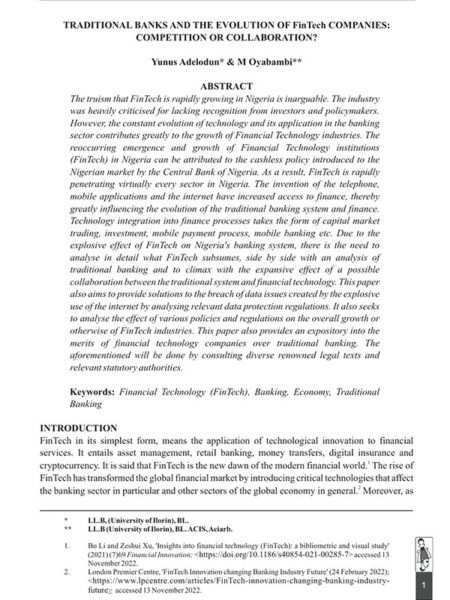
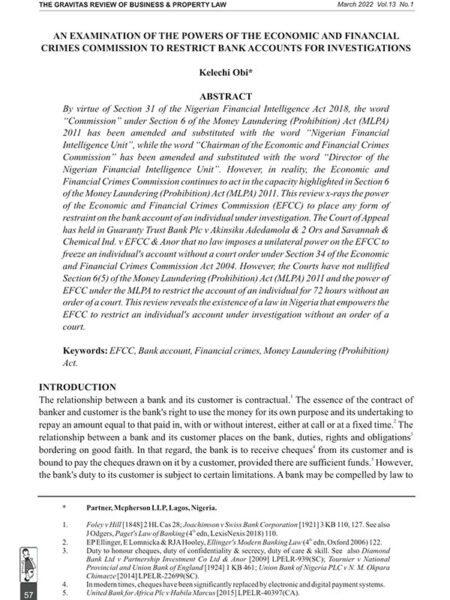
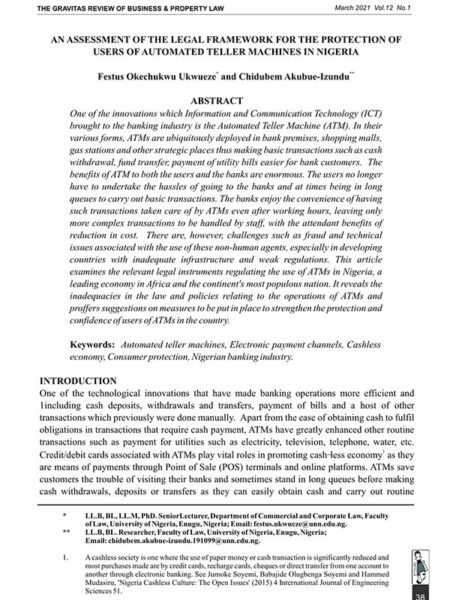
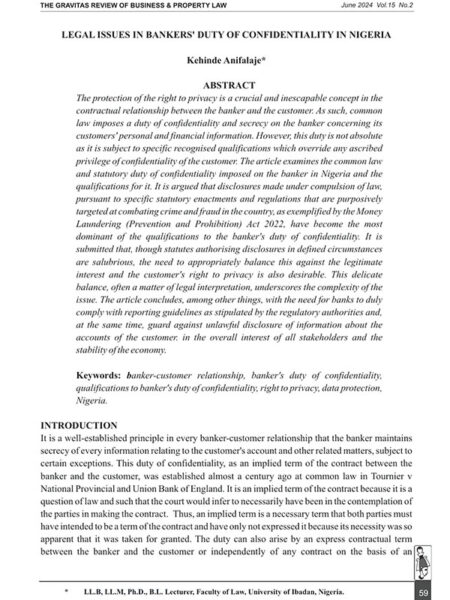


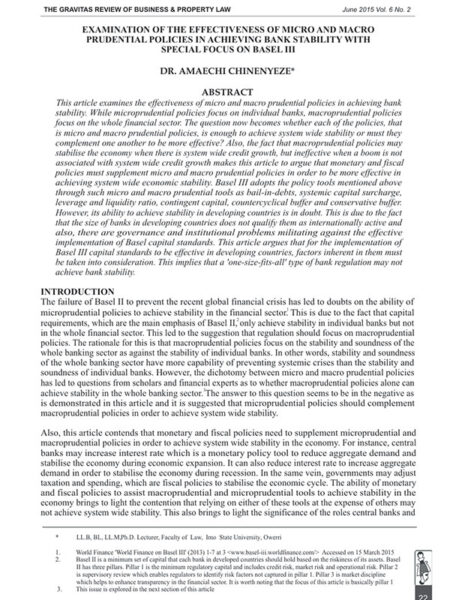
Reviews
There are no reviews yet.